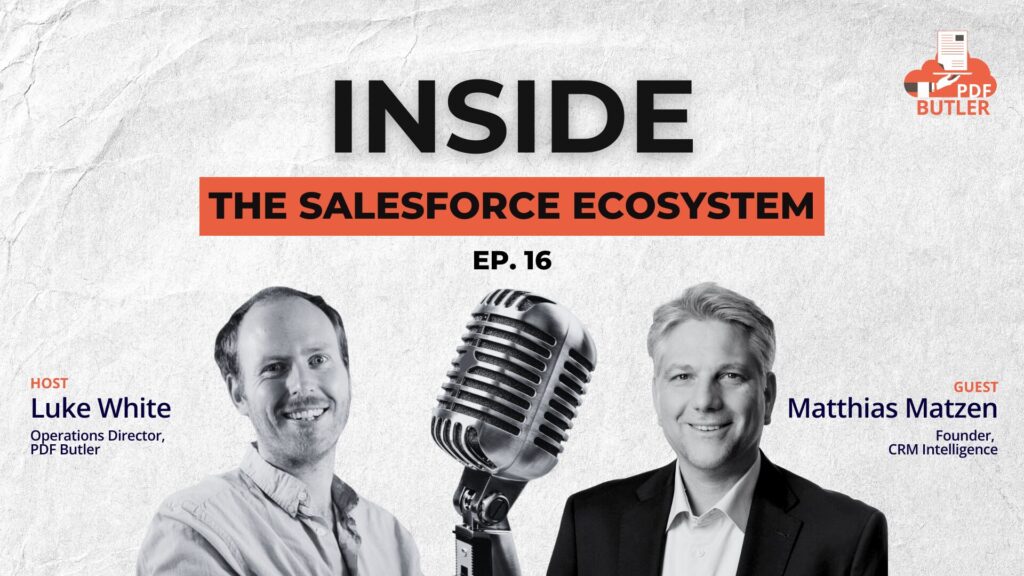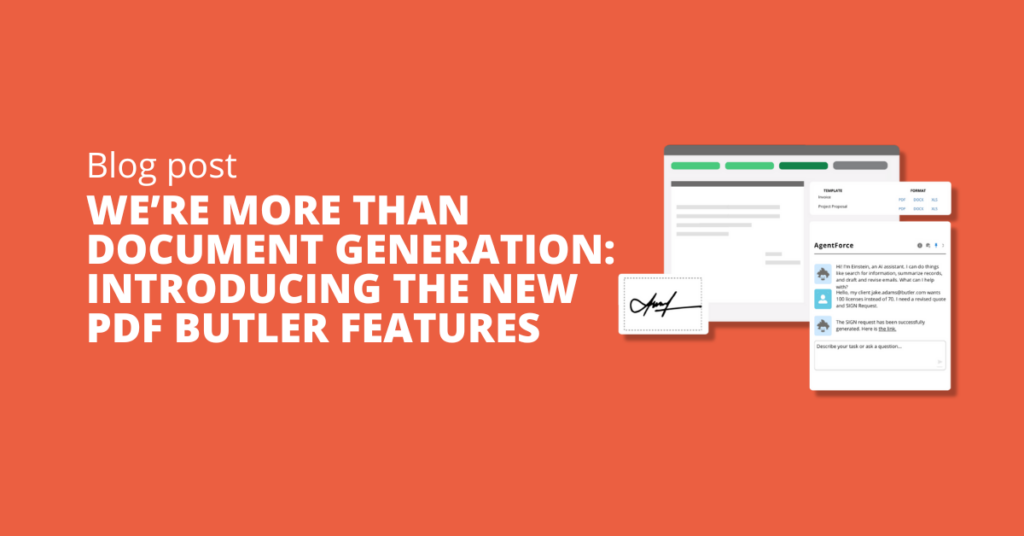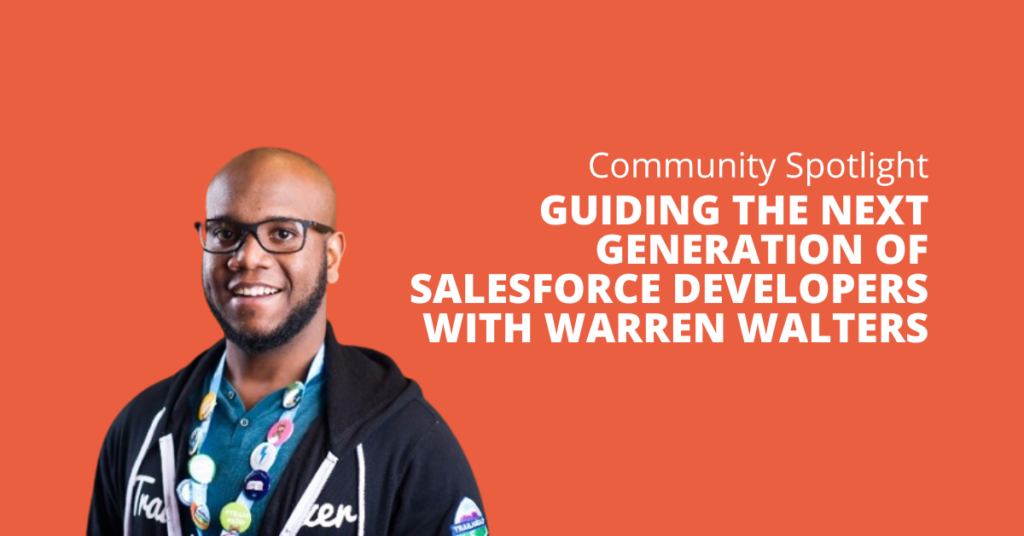In this episode, Luke White sits down with Matthias Matzen, founder of CRM Intelligence, to talk about how sailing shaped his leadership approach, the biggest CRM challenges he sees, and why communication is at the heart of every successful project.
With over 20 years of experience in sales, CRM, and digitalization, he helps clients from various industries to optimize their sales processes, implement CRM platform projects, and enhance customer success and user adoption.
Let’s get started!
Q: Can you briefly introduce yourself and your role?
Matthias: I founded CRM Intelligence back in 2010 with the goal of helping customers be successful with their CRM projects.
Before that, I managed a CRM rollout for 600 users at a German enterprise, which taught me how important it is to lead with real-time data and strong communication.
Outside of work, I was a semi-professional sailor, and I combined those things and thought, “Maybe that’s a good idea to help customers.”
In sailing, you have different roles, constant communication, and clear debriefs after each race. The same applies to CRM projects. You need teamwork, trust, and transparency to reach your goals.
Q: Where do you see some of the similarities between sailing and business?
Matthias: When you sail, you’re part of a team of about eight to ten people.
Everyone has different roles and experiences. You have a leader at the wheel, someone advising on direction, and a crew adjusting the sails.
It’s just like a company. You need communication and trust. We always do a briefing before a race and a debriefing after to see what worked and what didn’t. The same approach helps in business: clear goals, honest communication, and teamwork make a project successful.
Q: So was sailing the inspiration to start CRM Intelligence back in 2010?
Matthias: Yes, it was.
After ten years in sales and CRM projects, I had learned a lot about sales development and account planning. I saw how people struggled to lead with data.
From sailing, I learned communication, flexibility, and trying new approaches. So I thought, let’s be more pragmatic and hands-on. I had never run my own company before, but it started well, and now it’s been 15 years.
Q: What are the most common CRM challenges you see companies facing?
Matthias: Honestly, I often step in as a co-pilot at different stages—sometimes at the start when defining requirements, sometimes after licenses are signed, or when customers are not happy with their system.
The main challenge is poor user adoption. Companies start too late to talk about adoption and don’t consider different user expectations.
Another big issue is missing or unclear requirements. Many have old processes or too many workarounds that are not harmonized. And most projects are not ready when they start. Requirements are outdated, data quality hasn’t been considered, and internal preparation is missing.
Q: How can companies improve user adoption?
Matthias: So first of all, take them seriously.
As someone with a sales background, I can tell when objections come from poor system design or wrong priorities. CRM should make work easier, not harder. Too many clicks or unclear processes kill adoption.
You also need a clear “why.” Sales teams must see how CRM helps them plan better, track progress, and win more deals. When they understand the benefit, adoption follows.
Q: What, in your opinion, makes Salesforce stand out compared to other platforms?
Matthias: Salesforce is a real 360-degree platform. It was the first cloud-first solution that brought everything together.
Integration is also very strong. I’ve never seen Salesforce used alone; it’s always part of a bigger system landscape. But it connects well and becomes the platform of truth. Salesforce is absolutely the leading platform in the market.
Q: AI and Agentforce are hot topics right now. How do you see them evolving?
Matthias: Clients ask about AI every week.
Most want to know if they are ready to use it and what the right use cases are. I think it makes sense for repetitive tasks like customer-care inquiries or documentation management.
Agentforce is developing fast. Over the next year, we’ll see many more use cases. Everyone—Salesforce, partners, and customers—is learning together right now.
But AI won’t replace salespeople. It will assist them. It can prepare meeting notes, generate quotes, and free up time. At the end of the day, business is still about people.
Q: What trends are you seeing in how companies use CRM to improve sales?
Matthias: I see more focus on opportunity scoring and data-driven decisions.
Teams are smaller now, so they need to focus on the right opportunities. Scoring helps measure deal maturity, but people still make the final decision. Data supports the process—it doesn’t replace judgment.
Q: How has the Salesforce ecosystem evolved over the years?
Matthias: The ecosystem is one of Salesforce’s biggest strengths.
The AppExchange came early and built a huge network of solutions and partners. You can find almost any tool you need, ready to use and well supported.
Salesforce also keeps driving innovation. Sometimes it feels early, but later you realize why they did it. Their industry knowledge and community spirit make this ecosystem unique.
Q: How does PDF Butler support your work with clients?
Matthias: We started using PDF Butler in 2019 after comparing several solutions.
It was the most flexible then and is even more powerful now. We use PDF Butler, Sign Butler, and Form Butler in multi-language, multi-country setups, and we’ve never had a requirement we couldn’t meet.
The academy and support team are excellent. Fast, reliable, and helpful. Customers love it, and so do we.
Q: What advice would you give to a company just starting its CRM journey?
Matthias: Take your time and plan carefully.
Define what you want to achieve and how CRM fits into your bigger transformation. Avoid starting too many projects at once without a shared vision.
Get your users involved early and prepare your team before signing licenses. Be clear about responsibilities and bring in experienced partners. Being project-ready is half the success.
Q: What do you enjoy outside of work?
Matthias: Sailing is still a big part of my life, both racing and cruising with family. I also love music—playing, listening, and going to concerts. Traveling to new places for music events is inspiring. Creativity in music and in business often go hand in hand.
Thank you, Matthias. It’s been great hearing your story and insights.



